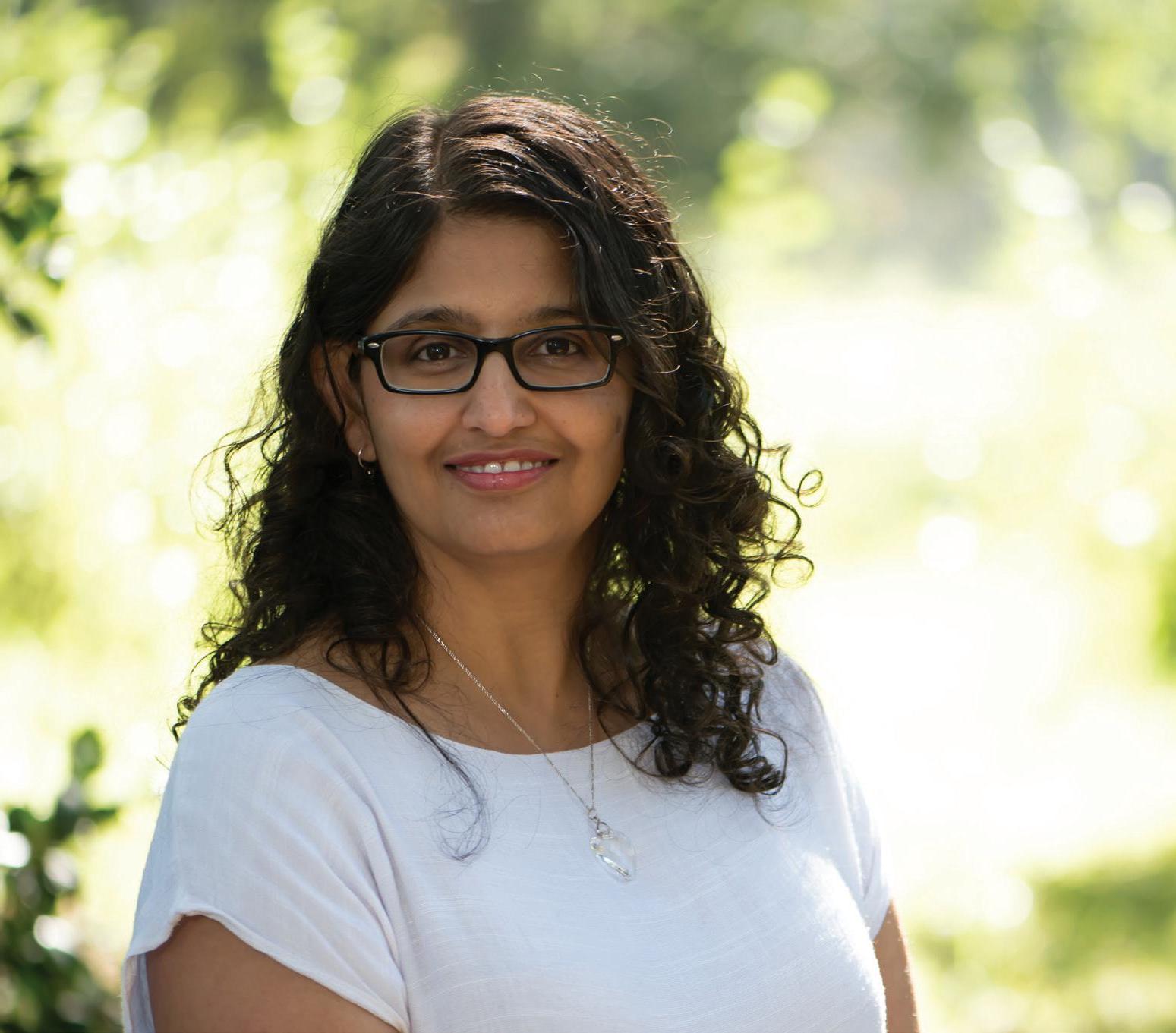
4 minute read
Health
Dr Shivani Ranchod
A QUESTION OF ACCESS
The COVID-19 pandemic has exposed the deep inequalities in the country’s healthcare system, reports Lisa Witepski
The right to access healthcare services may be enshrined in the South African Constitution, but the reality is that for many this access remains problematic, as the COVID-19 pandemic has shown.
Not all of the learnings about access that have emerged during this time have been negative, says Dr Shivani Ranchod, CEO of Percept, who believes that the gaps that have been revealed may help to provide guidance for a stronger healthcare sector.
The pandemic has brought about “huge leaps” in areas like home deliveries for medicine, says Ranchod. While this service may have been readily available to patients using the private sector, public sector patients have historically queued for many hours outside clinics to receive medication. “The lack of physical access during hard lockdown was a big issue. There was a major risk that patients would be forced to default on chronic medication,” she says. This prompted the initiation of many new delivery models, which are still facilitating deliveries in remote areas.
Strides have also been made in the area of telemedicine where a temporary relaxation of the regulatory environment made room for “an explosion of innovation and new players”. Ranchod believes it will be a great pity if fi rmer regulations are put back in place because “the digital space is a game-changer in terms of doing more with constrained resources; a space for experimentation”.
On the fl ipside, the pandemic has highlighted huge vulnerabilities around noncommunicable diseases, especially around the country’s health system’s ability to screen for symptoms and thus identify patients in communities. Many cases of, for example, diabetes, go undetected – this is a major inhibitor to the provision of proper care because early case fi nding is the cheapest way to prevent disease. New awareness around the issue may lead to improvements in this area.
Ranchod says that South Africa has also displayed weaknesses around palliative care. “Lack of resources in this area means that many people have died after being sent home from hospital without further care.” The Medical Research Council has pinpointed this as an area for further research. for the vaccination campaign is in place, but, as Ranchod says, “there are societal and moral values at play, which infl uence who should receive the vaccine fi rst”. What makes this even more complicated is the lack of information about which South Africans are living with comorbidities – data that may be readily available in the private sector, but is lacking in the public sector.
Dr Ernest Darkoh of the BroadReach Group has different concerns: “We need to have reasonable expectations,” he says. “The sheer volume of people requiring vaccinations makes timelines tricky. Throw in simple issues, like the time needed for vaccinators to eat lunch or open clinics in time for the vaccinations to defrost, and the numbers game becomes even more complicated.” The answer, he believes, lies in detailed planning, but he adds, the pandemic has already highlighted the shortcomings of and long-standing gaps in our health system, which make this diffi cult.
TECHNOLOGY IS KEY TO ADDRESSING HEALTHCARE CHALLENGES
“Lack of resources in this area means that many people have died after being sent home from hospital without further care.” The Medical Research Council has pinpointed this as an area for further research.
WHAT ABOUT THE VACCINE? THE VACCINE?
Ranchod is positive about positive about South Africa’s South Africa’s COVID-19 COVID-19 vaccination vaccination roll-out. The capability The capability Across the African continent, the biggest challenge in the fi ght for equitable access to healthcare is that demand always outstrips supply. This means that the world’s most complex health challenges coincide with a severe shortage of healthcare resources.
Vantage Health Technologies, part of the BroadReach Group, believes that access to good health — a basic human right — enables people to fl ourish and that this vision can be achieved by harnessing health technology and innovation to empower human action. This can be done by being smart with what we have and by using technology what we have and by using technology and wisdom to give the right information and wisdom to give the right information to the right people, at the right time, to the right people, at the right time, so that they can save and improve so that they can save and improve more lives. more lives.
To address the massive logistical To address the massive logistical challenge of obtaining and deploying challenge of obtaining and deploying the COVID-19 vaccine throughout the COVID-19 vaccine throughout Africa, BroachReach uses its Africa, BroachReach uses its AI-enabled platform, Vantage, to deal AI-enabled platform, Vantage, to deal with issues such as community outreach, with issues such as community outreach, identifying high-risk populations, stock identifying high-risk populations, stock management, workforce management, management, workforce management, surveillance mapping and adverse surveillance mapping and adverse event reporting. It also helps health event reporting. It also helps health organisations optimise health organisations optimise health outcomes and resources outcomes and resources by enabling timely and by enabling timely and informed action.




